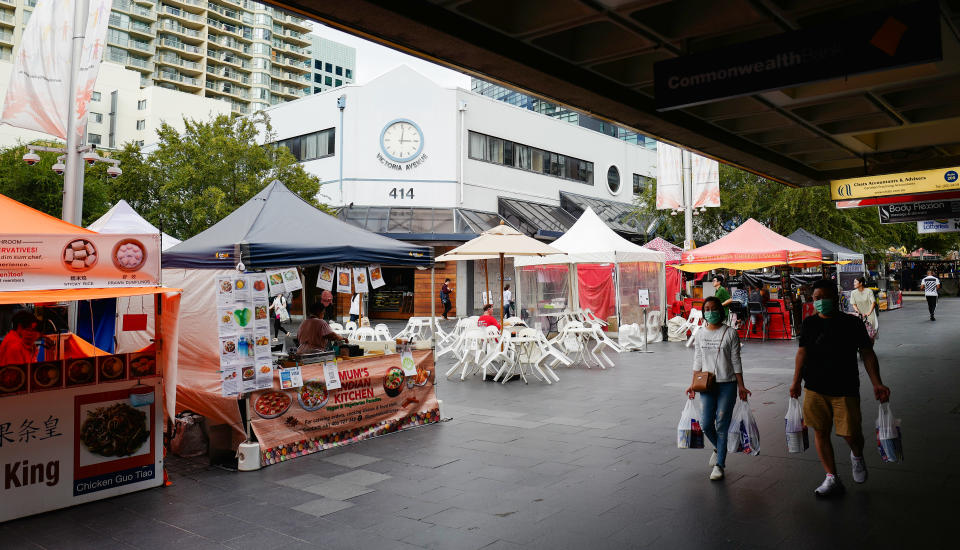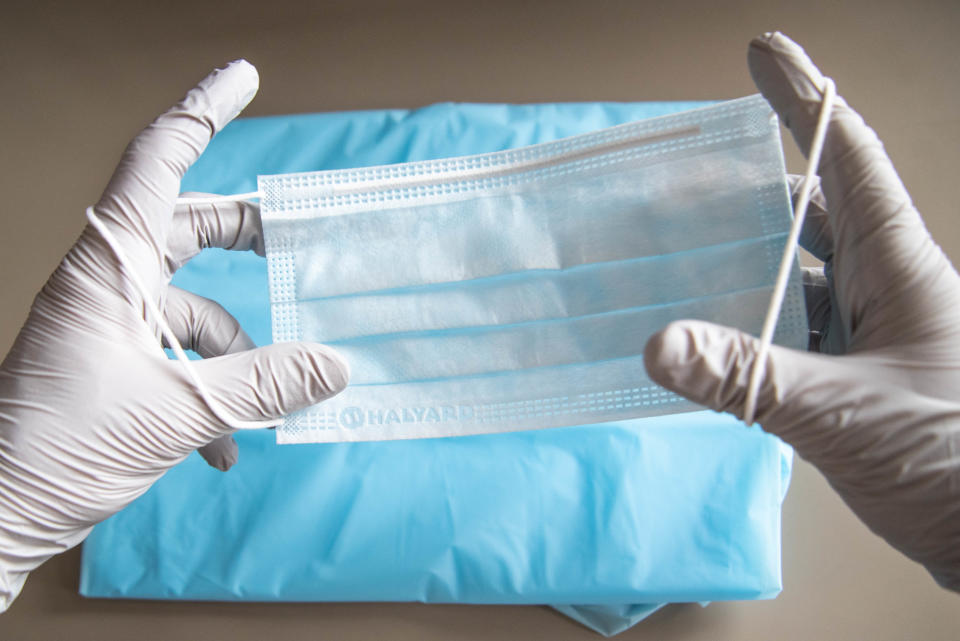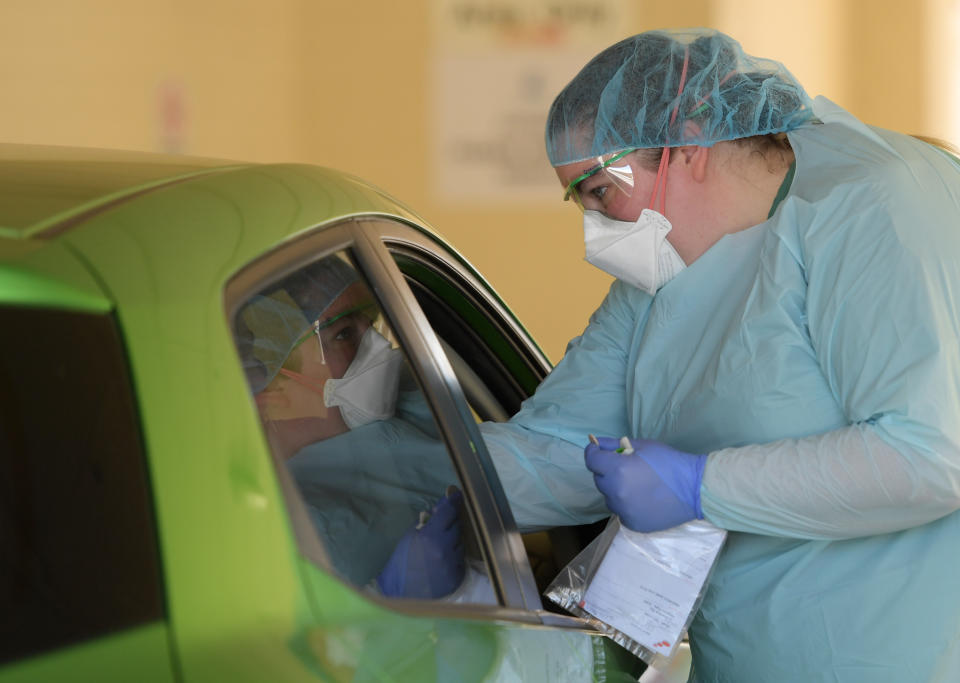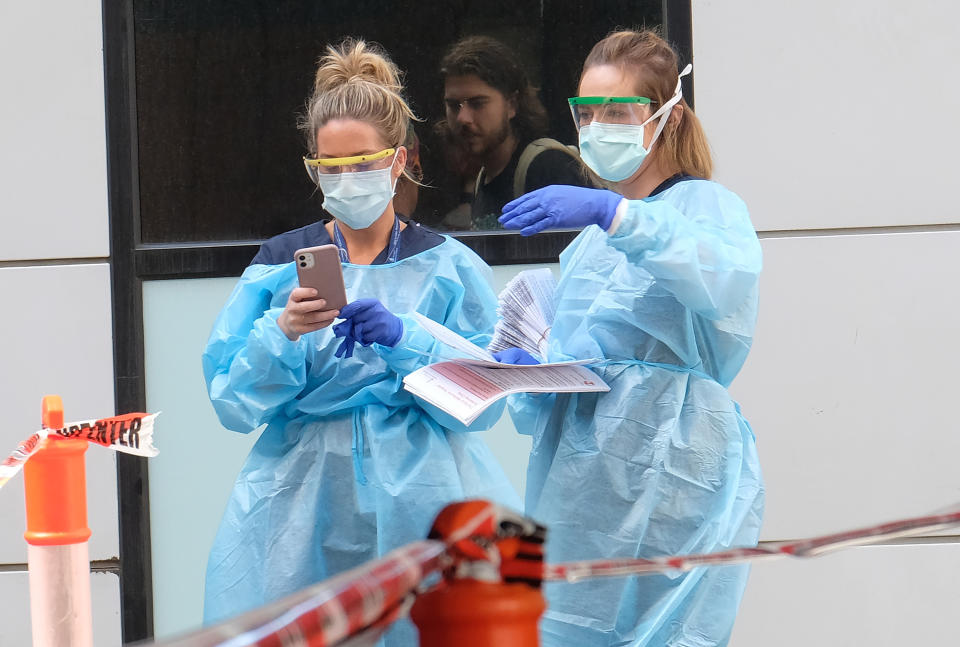Think you have coronavirus? Here's how you can get tested
Do you know what do you do if you suspect you have the contagious disease?
Experts say Australia is still in a "containment mode" but an epidemic is possible and could last from eight weeks to 14 or 16 weeks.
Coronavirus live blog: Latest news and updates about the crisis in Australia
The federal government announced a $2.4 billion health package on Wednesday to combat the coronavirus outbreak. It will unveil an economic stimulus package on Thursday, focusing on business, families, pensioners and welfare recipients.
State, territory and local government leaders will be asked at a COAG meeting in Sydney on Friday to come up with their own additional responses to boost the economy.
A 24/7 hotline has also been set up by the Federal Government for anyone seeking information on the virus.
Testing for coronavirus in NSW
In NSW, people can only get tested for coronavirus if they fulfil the “case definition”.
Criteria for this, outlined by NSW Health, includes either having travelled to one of the countries affected by the virus including Italy and China in the 14 days before the onset of illness.
The other criteria is if they’ve had contact with a confirmed case of COVID-19.

If the criteria is fulfilled, people need to book an appointment with a private testing facility.
These pathologists are the only ones equipped to conduct a nasopharyngeal swab to determine if a patient has coronavirus. It’s a swab which involves taking samples from the throat and nose.
As of Wednesday, there were 65 confirmed cases of coronavirus in the state.
What to do in Queensland
Queensland Health is advising anyone who’s been overseas in the past 14 days and is feeling unwell to see a doctor immediately.
The department listed symptoms as coughing, sore throat, fatigue and shortness of breath.
It’s recommended anyone who suspects they might have the virus to tell their GP before visiting so the doctor can take the appropriate precautions.
Anyone who is suspected to have it may need to undergo a chest X-ray.

For residents in Victoria
It’s much the same for people living in Victoria.
Former Australian Medical Association president Mukesh Haikerwal told 3AW he’s resorted to putting on a mask, moon suit and shoe covers before testing people in their cars outside his Altona North clinic in Melbourne’s southwest.
"They park outside the building and we go out one entrance that is okay to go out of to do the swabs, collect the swabs and they can go off and self-isolate until their result comes back," Dr Haikerwal told 3AW radio.
"We go to our flu area and clean up all of our dirty garb... We are clean, they are clean. And nobody is contaminating the waiting area of the rest of the practice, so it is clean."
South Australia’s drive-thru
Five coronavirus clinics have opened in metropolitan Adelaide, with a focus on pregnant women, children, and their parents.
The clinic opened at the Women's and Children's Hospital on Wednesday and will be available from 9am-8pm every day.
Parents and children who have flu-like symptoms and have travelled overseas within the last 14 days or have been in contact with someone who has the virus will be tested.
You will only be tested for #COVID19 if you develop a respiratory illness and:
- returned from overseas, or have been in close contact with a confirmed case, in the past 14 days
- are a healthcare worker, with a fever, who works directly with patients.https://t.co/JD5gXxL1X5 pic.twitter.com/zZBcEy4X27— Australian Government Department of Health (@healthgovau) March 18, 2020
Across all SA clinics, almost 400 people have been tested since the first facility opened last Wednesday.
South Australia confirmed two more cases of coronavirus on Wednesday after two men who recently travelled overseas tested positive.
Chief Public Health Officer Nicola Spurrier says the men, one aged in his 60s and the other aged in his 70s, presented to a virus testing centre on Tuesday with the positive results confirmed on Wednesday.
It is believed one man had travelled to Italy and Austria and the other to Southeast Asia but details of their flights or other people they may have come into contact with are not yet available.

Women's and Children's Hospital chief executive Lindsey Gough said there was a likelihood of people presenting for unnecessary testing.
The public is reminded not to attend clinics if they do not meet the testing criteria.
The hospital's patient flow director Monique Anninos said the maximum number of patients treated daily was unclear.
"We haven't had a clinic like this open since the Swine flu in 2009," Ms Anninos said.
"We saw a significant increase in numbers when schools closed which is the biggest concern."
Coronavirus travel chaos – How your holiday plans are affected
Country forced to issue warning over bizarre coronavirus rumour
SA Health has also introduced a drive-in testing station at the reactivated Repatriation Health Precinct in Adelaide’s south.
It will test up to six patients an hour between 8am to 4.30pm on weekdays but a doctor’s referral is needed.
What to do in Tasmania
In Tasmania, residents need to call a doctor who will advise where the patient needs to go next.
The health department is telling people when they travel to the next facility for further testing not to take an Uber or a taxi. They also need to travel with as few people possible to minimise the risk of passing on the virus.
“To test for the virus, a healthcare worker will take swabs from your nose and throat,” the health department said.
“To protect themselves when they are in close contact with you, the nurse or doctor will wear a face mask and safety goggles. The swabs will be sent to the Royal Hobart Hospital for testing.”
While waiting for results, the health department is advising people to stay at home in isolation.
Results are normally confirmed within one to two days.
People flooding through in Perth
In Western Australia, if anyone believes they have the virus either by being to a country with cases of the disease or having been in contact with someone who has it, is being told to call their doctor.
Before visiting a doctor, however, it’s advised to tell them the appointment is for coronavirus so they can prepare appropriately.

WA Health said if anyone is feeling “very unwell” they should call Triple-0.
Chief Health Officer Andrew Robertson told the ABC about 800 people have gone in for testing at Royal Perth, Fiona Stanley and Sir Charles Gairdner hospitals.
These facilities only opened their doors on Tuesday, and are currently open from 8am-8pm each day.
How to test in the NT and the ACT
Residents in the Northern Territory, which doesn’t have any reported cases of coronavirus at this stage, who have either been to a high risk country or have contact with someone with the virus are being advised to get tested.
“Testing can be done by most medical centres or GPs,” the health department said.
“If you are in Darwin you can visit the NT’s Pandemic Clinic on the campus of Royal Darwin Hospital.
“You must phone ahead to your GP and the Clinic to get instructions on what to do.
“To access the Pandemic Clinic you need to call the Public Health Unit on 08 8922 8044.”
The NT Government is also working to facilitate similar clinics to support doctors in Alice Springs and other regional areas.
If anyone in the ACT is concerned, they can call their GP.
They can organise further testing. If a patient falls “very unwell”, doctors are being told to call the Canberra Hospital Emergency Department.
There is also a walk-in clinic in Weston in Canberra’s southwest.
Government to provide free GP assessments and pop up clinics
The federal government announced on Tuesday a $2.4 billion health package in response of the outbreak.
From Friday, Australians will be able to bulk-bill phone hook-ups with GPs to diagnose coronavirus symptoms.
Health authorities would also establish up to 100 "pop-up" clinics, with each expected to handle 75 patients a day.
The government hopes the clinics will divert people with coronavirus away from hospitals, with two of the country's peak medical bodies to help identify suitable locations.
“Now is the moment of pressure... this is a once-in-50-year challenge that we face,” Federal Health Minister Greg Hunt said.
with AAP
Do you have a story tip? Email: newsroomau@yahoonews.com.
You can also follow us on Facebook, Instagram and Twitter and download the Yahoo News app from the App Store or Google Play.





